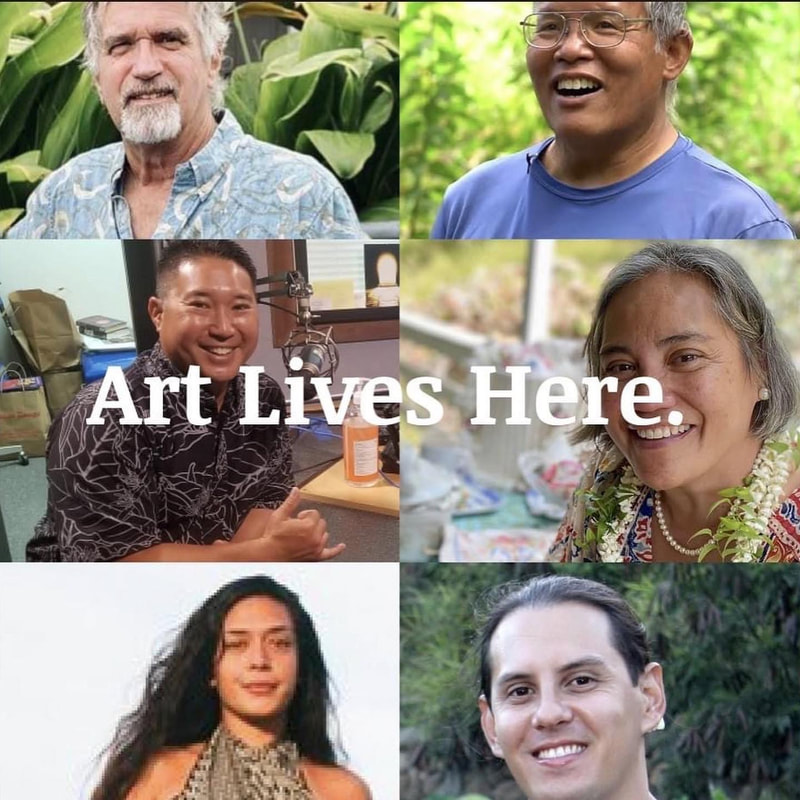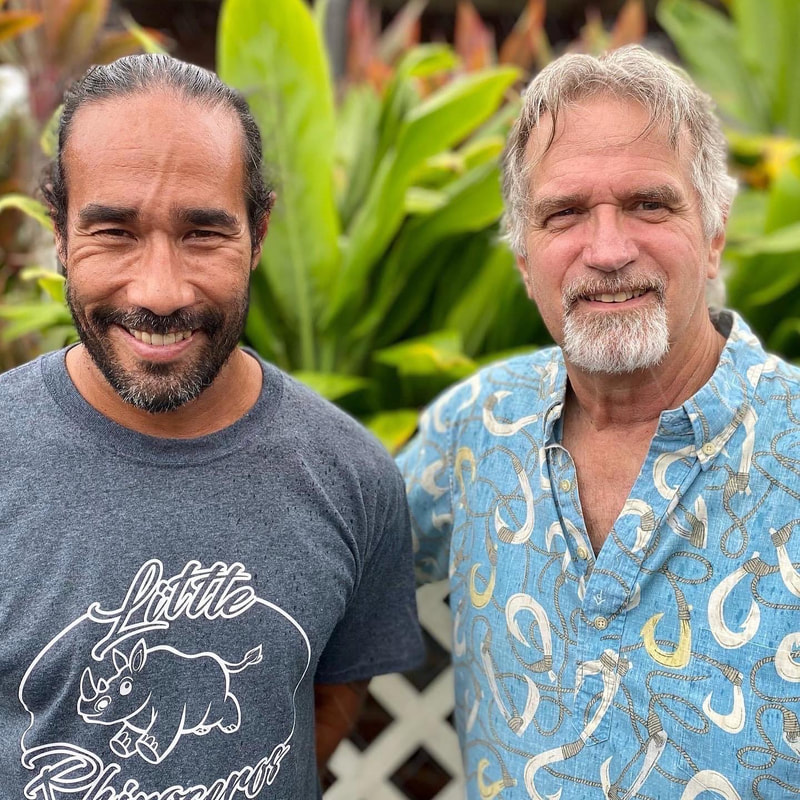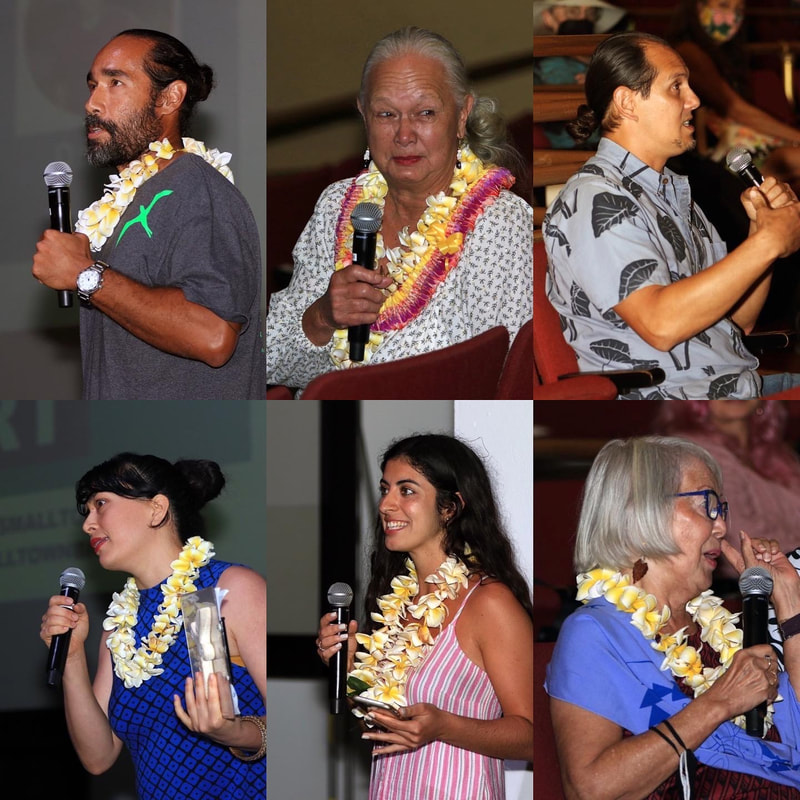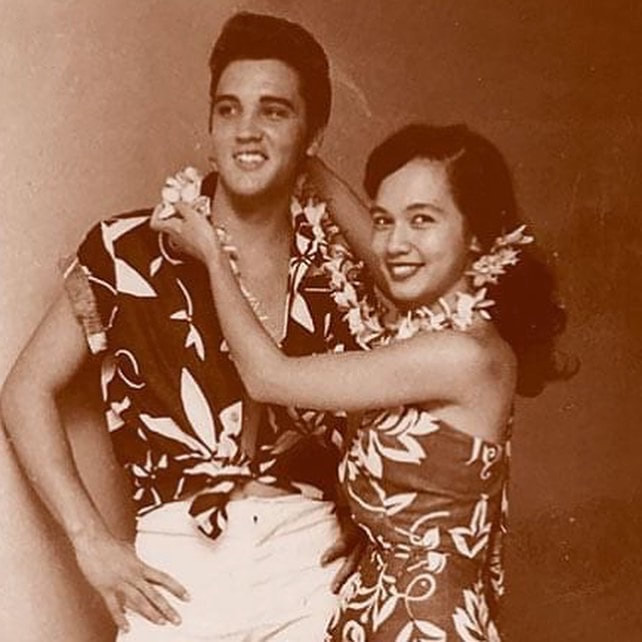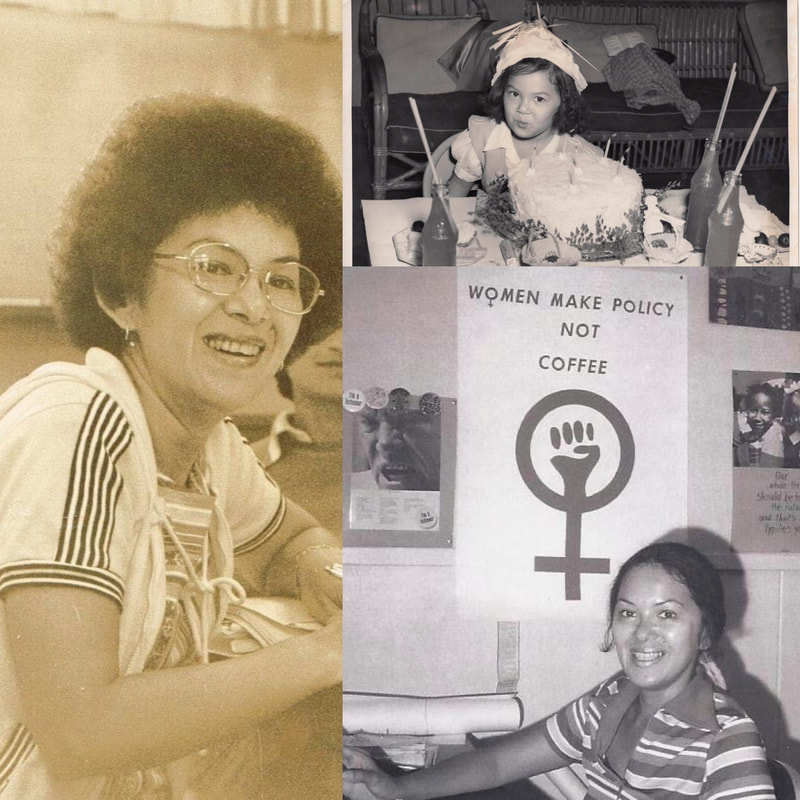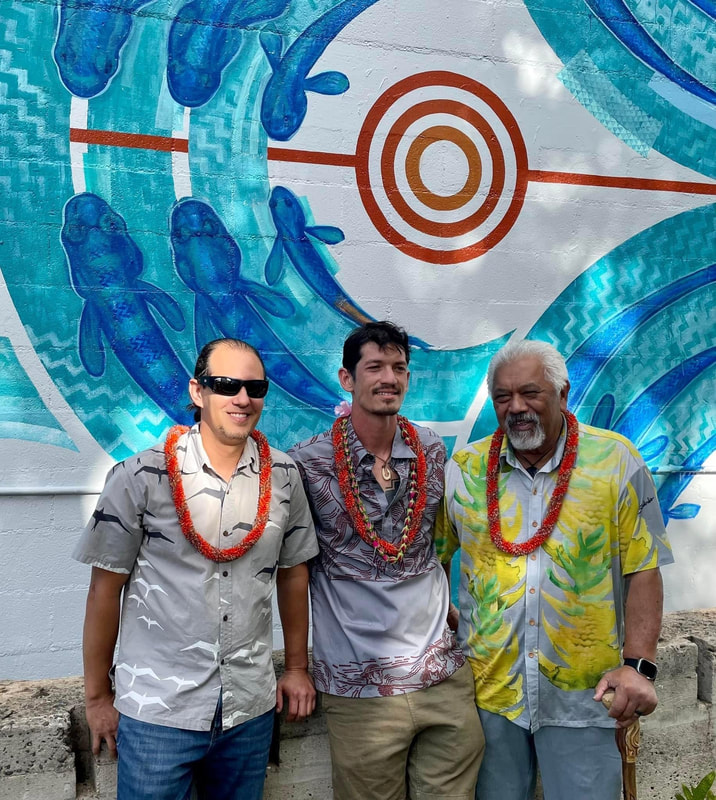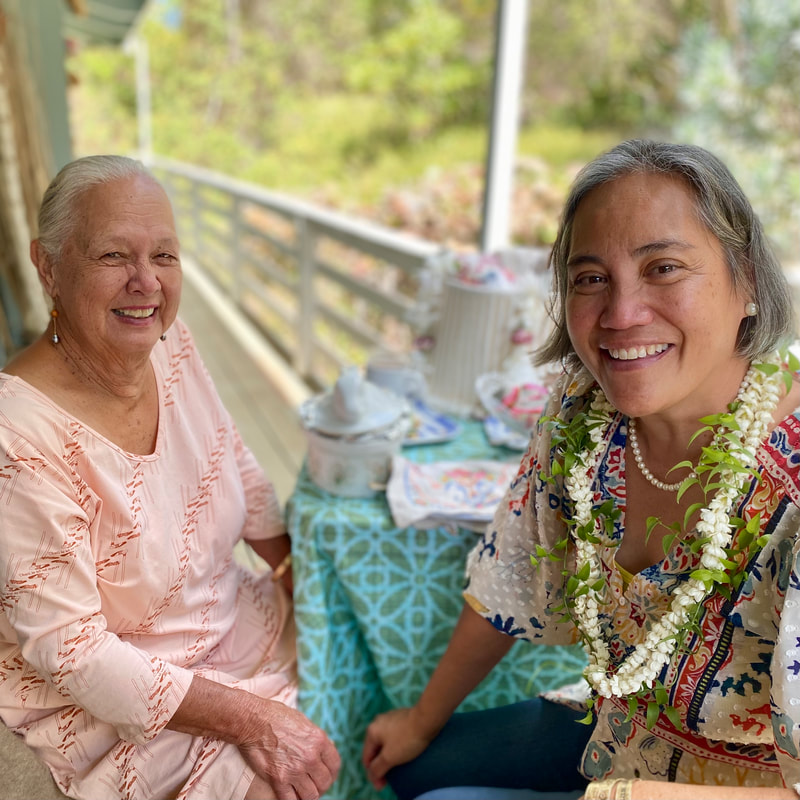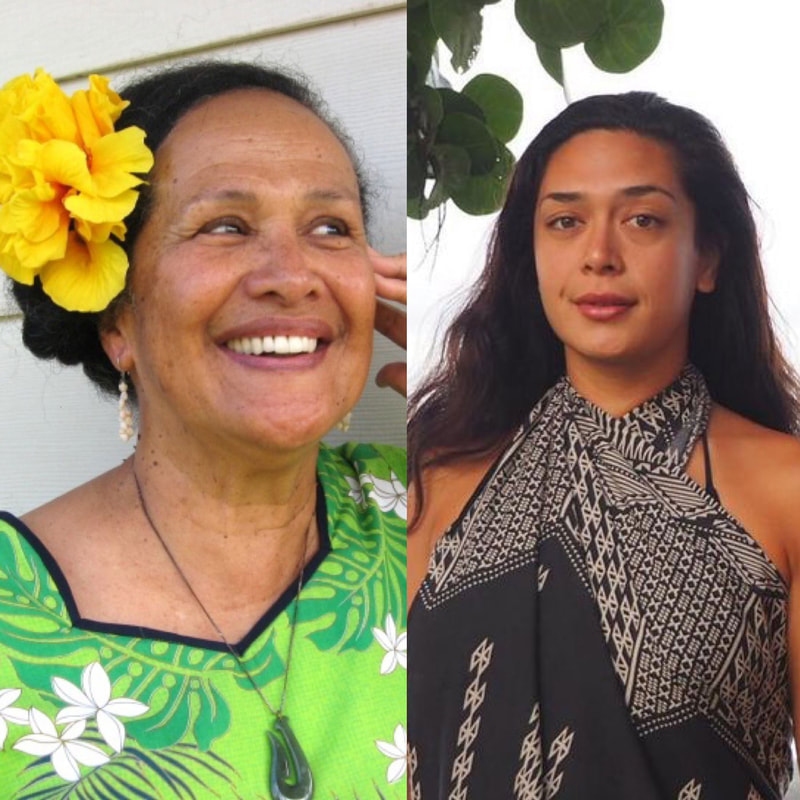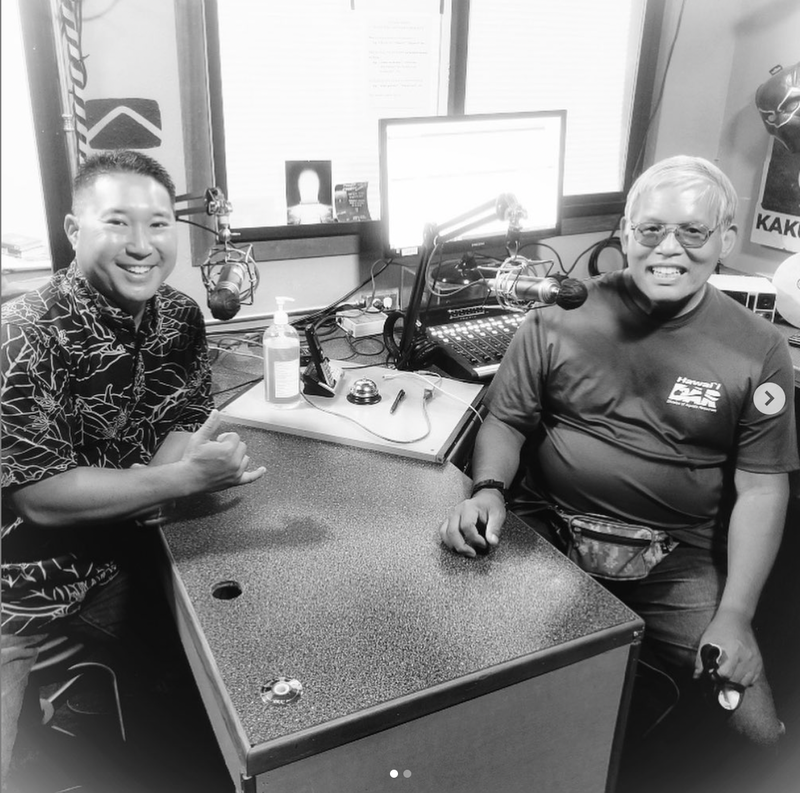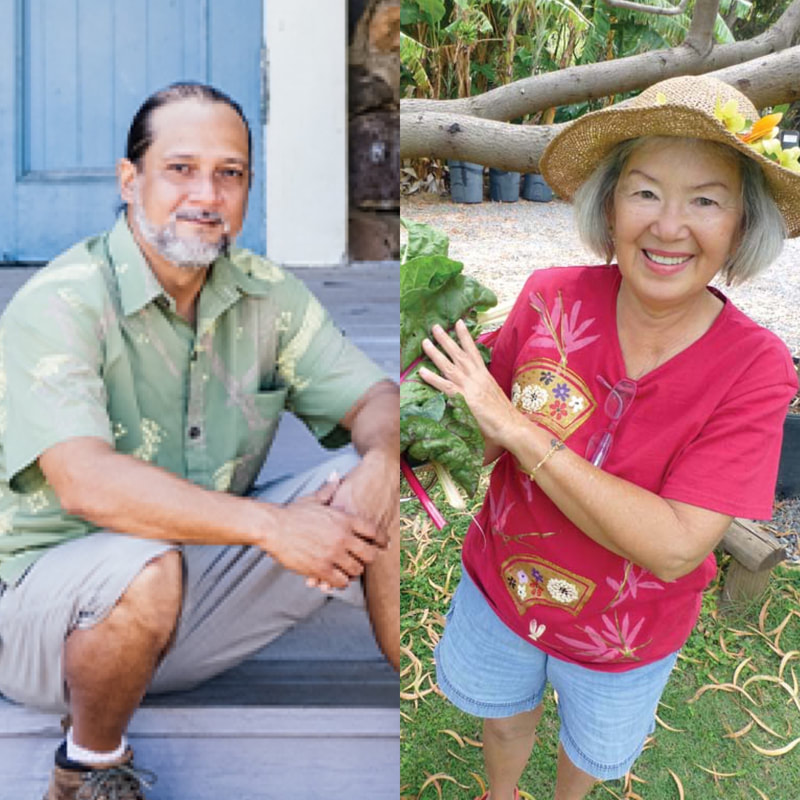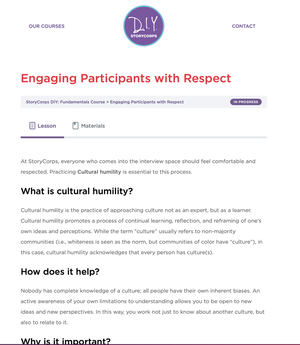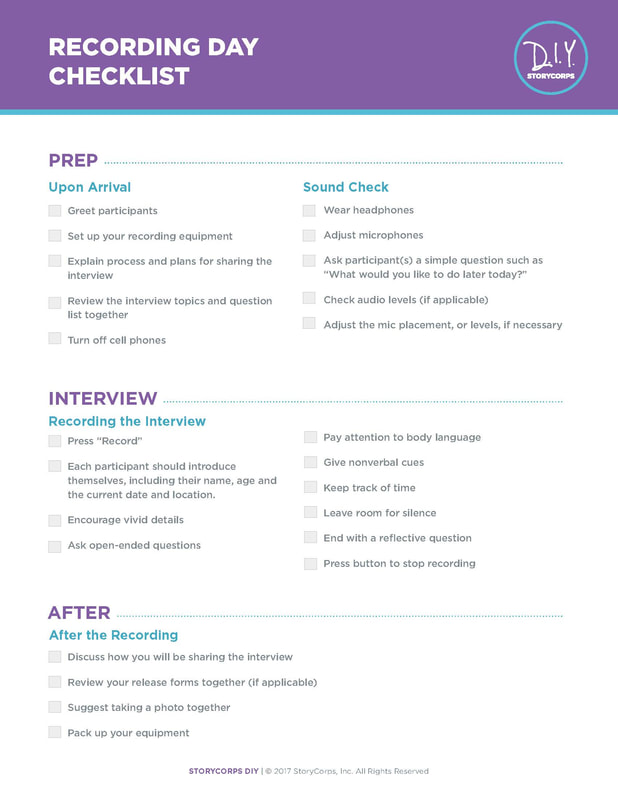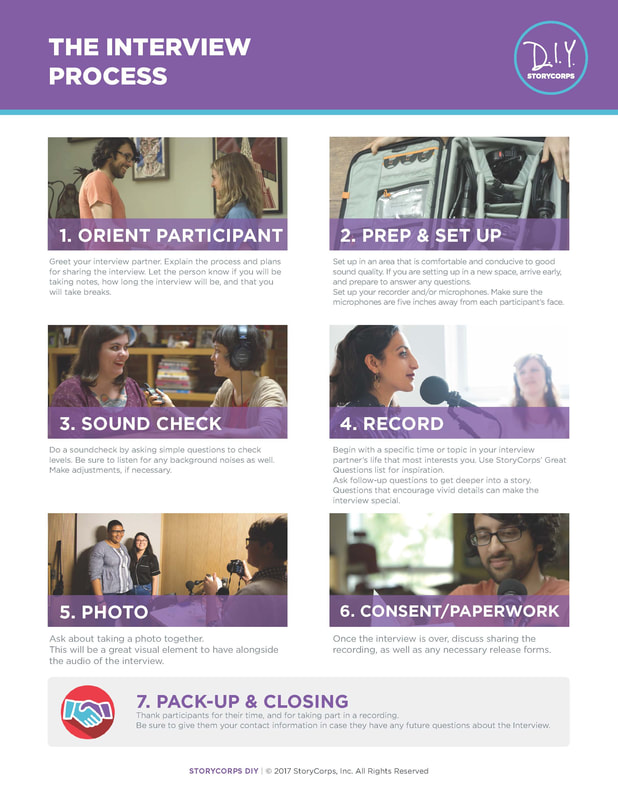TALK STORY
We are currently piloting a new project to create a Maui County story bank.
In July 2021, participants of our ST*BA storytelling exchange led by artist Leilehua Yuen were paired up with community kūpuna to engage in an open talk story session. Each pairing met for a 40-minute, audio-recorded conversation with the goal of capturing an authentic moment of connection through stories that are embedded in a Maui sense of place. Then, Akakū Community Media's professional editing team condensed each recording into 3-minute segments that became the foundation of our fall 2021 ST*BA call-to-artists process, wherein applicants based public art proposals off of a story of their choosing.
Due to the project's communal resonance, we invited Leilehua to take on annual cohorts to expand our network of storytellers, capture new Maui stories and inspire potential works of public art. This gathering of stories, or Hui Mo‘olelo, has resulted in multidisciplinary public artworks, film festivals, a Master's Thesis project for a cohort of Indiana students, an Arts & Resilience event following the 2023 Maui Wildfires, a StoryCorps collection housed at the American Folklife Center at the Library of Congress in Washington D.C., and so much more.
Visit mauipublicart.org/hui-moolelo to enjoy the collection.
In July 2021, participants of our ST*BA storytelling exchange led by artist Leilehua Yuen were paired up with community kūpuna to engage in an open talk story session. Each pairing met for a 40-minute, audio-recorded conversation with the goal of capturing an authentic moment of connection through stories that are embedded in a Maui sense of place. Then, Akakū Community Media's professional editing team condensed each recording into 3-minute segments that became the foundation of our fall 2021 ST*BA call-to-artists process, wherein applicants based public art proposals off of a story of their choosing.
Due to the project's communal resonance, we invited Leilehua to take on annual cohorts to expand our network of storytellers, capture new Maui stories and inspire potential works of public art. This gathering of stories, or Hui Mo‘olelo, has resulted in multidisciplinary public artworks, film festivals, a Master's Thesis project for a cohort of Indiana students, an Arts & Resilience event following the 2023 Maui Wildfires, a StoryCorps collection housed at the American Folklife Center at the Library of Congress in Washington D.C., and so much more.
Visit mauipublicart.org/hui-moolelo to enjoy the collection.
FORMAT
Our process was designed with the help of StoryCorps DIY, offering best practices, sample questions and guidance.
- Complete "The Value of Storytelling" 3-part workshop series, through which participants create their own micro-storytelling presentation that is rooted in a distinctive sense of place, history and culture.
- Coordinate the best date & time to meet an intergenerational partner to talk story at Hale Hōʻikeʻike at the Bailey House/ Maui Historical Society.
- Each of you may select 4-5 of the "Sample Questions & Prompts" below, or create your own prior to your scheduled recording. Feel free to go “off-script” and ask follow-up questions. Our goal is to capture an authentic moment of connection that is rooted in a Maui County sense of place. You can tell jokes, stories, share photos, objects, memories or choose another way to help you get there.
- Once settled into the recording space, the technician will signal to you that time has started. You'll have 40-minutes to talk story from this point. Start by stating your name, age, the date, and the place where you are - and let your match do the same. Then begin.
- When pau, ask the technician to take a photo of the 2 of you together and send it to us.
- That's it!
SAMPLE QUESTIONS + PROMPTS
- Explain the story behind your name.
- Describe your childhood home.
- What is your favorite place or places, and why? Can you draw a picture for me with your memories?
- How did your parents meet? What did they do for a living?
- Growing up, what did your community look like outside of your family? How did you meet them?
- Tell me about your neighborhood. Are there any special places of interest?
- What languages do your parents and grandparents speak?
- What games did you play when you were young? What toys did you have? Where did you play?
- Have your hobbies and interests changed over time?
- Describe your grammar school/high school. Did you have any influential teachers?
- Did you have any goals/dreams for “when you grew up?”
- Tell me about the house you grew up in. Where did you spend most of your time? Did you move to another home while you were growing up? Tell me about the new home.
- What were mealtimes like in your family? What foods did you eat? Who cooked the food? Who cleaned up after meals?
- How did your family get around? Did you have a car? Did you use public transportation?
- What did you listen to growing up?
- Do you remember any epidemics or diseases growing up? Did your family have any home remedies?
- What was your first job? What lessons did you learn? Additional jobs and details – trace career path, changes
- Tell me about any influential mentors.
- Tell me about your college years. What school? How did you decide to go there? What was your major?
- Did you do a semester abroad?
- How have historic events, such as 9/11, hurricanes, the Great Depression, world wars, natural disasters, strikes, and now Covid-19 etc., affected you?
- Did these events impact your community?
- What would constitute a “perfect” day for you?
- Name three things that you and I appear to have in common.
- For what in your life do you feel most grateful?
- If you could change anything about the way you were raised, what would it be?
- Take four minutes and tell me your life story in as much detail as possible.
- If you could wake up tomorrow having gained any one quality or ability, what would it be?
- Is there something that you’ve dreamed of doing for a long time? Why haven’t you done it?
- What is your greatest accomplishment?
- What do you value most in a friendship?
- What is your most treasured memory? What is your most terrible memory?
- Alternate sharing something you consider a positive characteristic of your talk story partner. Share a total of five items.
- Make three true “we” statements each. For instance, “We are both in this room feeling ... “
- Share an embarrassing moment in your life.
- When did you last cry in front of another person? By yourself?
- What, if anything, is too serious to be joked about?
- Your house, containing everything you own, catches fire. After saving your loved ones and pets, you have time to safely make a final dash to save any one item. What would it be? Why?
- Share a personal problem and ask your partner’s advice on how he or she might handle it. Also, ask your partner to reflect back to you how you seem to be feeling about the problem you have chosen.
- If you could hold on to one memory from your life forever, which would it be?
- (Tell the person you are interviewing what they mean to you).
- How would you like to be remembered?
Learn more at our STORY project page
